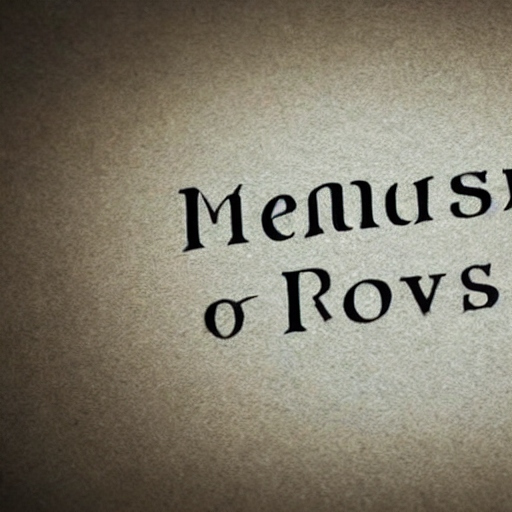
Word of the day: doctrinaire
Class: adjective | Syllables: dahk-truh-NAIR
Definition: Doctrinaire is a formal word that means “stubbornly or excessively devoted to a doctrine or theory without regard to practical considerations.” It is often used disapprovingly to describe a person who has very strong beliefs about what should be done and who will not change those beliefs or accept other people's opinions.
Example(s):
// They were pleased by the shift in leadership, as their old mayor was extremely doctrinaire.
Word of the day: wangle
Class: verb | Syllables: WANG-gul
Definition: Wangle means “to get (something) by trickery or persuasion.” It can also mean “to adjust or manipulate for personal or fraudulent ends.”
Example(s):
// He managed to wangle his way into the party.
// They wangled me into pleading guilty.
Word of the day: marginalia
Class: noun | Syllables: mahr-juh-NAY-lee-uh
Definition: Marginalia is a plural noun that refers to notes or other marks written in the margins of a text, and to nonessential matters or items.
Example(s):
// The students loved flipping through their literature textbooks to find the marginalia left behind by former students.
// She found the book's treatment of not only the major events but also the marginalia of Scandinavian history fascinating.
Word of the day: balkanize
Class: verb | Syllables: BAWL-kuh-nyze
Definition: Balkanize is an often-capitalized verb meaning "to break up (a region, a group, etc.) into smaller and often hostile units." It can also mean "to divide or compartmentalize."
Example(s):
// Opponents argue that the proposed legislation would only serve to Balkanize the country.
// Rock is one of many musical genres that has been balkanized into an array of subgenres.
Word of the day: endemic
Class: adjective | Syllables: en-DEM-ik
Definition: Endemic means “growing or existing in a certain place or region.” It can also mean “common in a particular area or field.”
Example(s):
// Our children were excited to finally see wild giant pandas—endemic to just three provinces in south-central China—during our family vacation.
// Although he discovered that low wages were endemic to his line of work, he continued to pursue his passion.
Word of the day: short shrift
Class: noun | Syllables: SHORT-SHRIFT
Definition: Short shrift is most often used to mean “little or no attention or consideration.” It is also sometimes synonymous with “quick work” as in “she made short shrift of that jigsaw puzzle.”
Example(s):
// Year-end “best of” lists can be fun to read, but because taste is subjective, they will always end up giving short shrift to someone’s favorite movies, albums, etc.
Word of the day: vulpine
Class: adjective | Syllables: VUL-pine
Definition: Vulpine is a formal word that means “of, relating to, or similar to a fox.” It is also used figuratively to mean “shrewd or crafty.”
Example(s):
// The makeup artist did an incredible job creating realistic vulpine features to complement my fox costume.
Word of the day: implacable
Class: adjective | Syllables: im-PLAK-uh-bul
Definition: Implacable means "not capable of being appeased, significantly changed, or mitigated; not placable."
Example(s):
// It's such a breath of fresh air to watch a movie whose antagonist is not some evil, implacable villain, but a regular person who sees the error in their ways by the time the credits roll.
Word of the day: paladin
Class: noun | Syllables: PAL-uh-din
Definition: A paladin is a leading champion of a cause, or a trusted military leader (as for a medieval prince).
Example(s):
// The keynote speaker is regarded as a paladin of environmental justice.
// The prince summoned the paladin and commended him for his actions in battle.
Word of the day: névé
Class: noun | Syllables: nay-VAY
Definition: Broadly, névé refers to a field of coarse, granular snow, but when used narrowly it means “the partially compacted granular snow that forms the surface part of the upper end of a glacier.”
Example(s):
// After years of compaction, the constant pressure eventually transforms névé into glacial ice.
Word of the day: recondite
Class: adjective | Syllables: REK-un-dyte
Definition: Recondite is a formal word used to describe something that is difficult to understand or something that is not known by many people.
Example(s):
// Despite the A’s she'd been consistently earning, she was nervous that microbiology was too recondite a subject for her to master as she had the others.
// The candy has the perfect balance of sweet and tart, but what delights me most are the recondite facts printed inside the wrapper.
Word of the day: countenance
Class: noun | Syllables: KOWN-tun-unss
Definition: Countenance is a formal word that is most often used to refer to a person's facial expression, or to the face generally, especially as an indication of mood, emotion, or character.
Example(s):
// Her cheerful countenance quickly put the lost visitors at ease.
// I was struck by the professor's kind and curious bespectacled countenance.
Word of the day: luscious
Class: adjective | Syllables: LUSH-us
Definition: Luscious most often describes something that has a delicious taste or smell, but it can also mean “richly luxurious or appealing to the senses,” “excessively ornate,” or “sexually attractive.”
Example(s):
// Their famous chocolate cake is served with a luscious peppermint whipped cream topping.
// Her deep, luscious alto made her the perfect choice to play the part of Sally Bowles, chanteuse of the Kit Kat Club in Cabaret.
// The author’s vivid, luscious prose won’t win over Carver or Hemingway die-hards, but fans of lovingly rendered (if a bit florid) description will eat it up.
Word of the day: bombast
Class: noun | Syllables: BAHM-bast
Definition: Bombast refers to speech or writing that is meant to sound important or impressive but that is not sincere or meaningful.
Example(s):
// The other world leaders at the international conference had little interest in being subjected to the host president's bombast.
A bot toots Word of the Day from Merriam-Webster (https://www.merriam-webster.com/word-of-the-day)
Profile header and avatar are generated by AI from DeepAI (https://deepai.org/machine-learning-model/text2img)
Github Repo: https://github.com/AkiGoat/MWwordoftheday-bot
